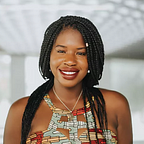Creating an African-Centered Education: The Need for Decolonization
Education is a powerful tool for transforming individuals and societies, providing individuals with the knowledge and skills they need to succeed. However, in Africa, education has been primarily shaped by colonialism, with curriculums and pedagogies designed to promote the interests and values of the Global West. This has resulted in an education system often disconnected from local realities and cultures and perpetuates the colonial era's inequalities and injustices. To truly empower African learners and promote development, it is crucial to decolonize education.
The term "decolonized education" has become popular in recent years. Especially in the African philanthropy space. But what does it mean? Decolonizing education involves reimagining the entire education system, from the curriculum and pedagogies to the assessment and evaluation methods. It means centering African perspectives, knowledge, and cultures in education and challenging the dominant narratives imposed on African societies.
Throughout history, Africans have persistently relied on Eurocentric education systems prioritizing Europe's historical role. As a result, our people, communities, values, and history have often been portrayed through the lens of Europeans, leaving our stories untold or misrepresented. This pattern of Eurocentric education has been entrenched since colonial times and continues to deprive Africans of knowledge about their own identity and culture.
Education serves as a means to transmit knowledge and the understanding of our collective history as a society. For example, the fact that European-Americans' educational system focuses on European culture's heroes and heroines is no accident. When students of European descent read and learn about the accomplishments of Newton, Shakespeare, King Henry VII, or Alexander The Great — they are invited to share in the legacy of their great predecessors. They are being reminded that they come from greatness and that greatness is within them. When we deprive African children of their history, we tell them the complete opposite- that they are not accumulators of knowledge and do not come from generations of people who have not achieved much.
"Those who fail to achieve very much continue to accomplish little because they don't know their potential because they have only been exposed to the potential of others." — Na'im Akbar
African children can only produce and compete on the global world stage if their education is revolutionarily reconceptualized in something reflective of African cultures. African children's education is not uplifting them; it keeps them as world consumers.
To decolonize education, we must challenge the Eurocentric curriculums often taught in African schools. By centering African perspectives and histories in education, learners can develop a greater sense of pride in their heritage and a deeper understanding of their communities' complex issues.
Another crucial aspect of decolonizing education is the recognition of African languages as valid forms of expression and communication. For too long, African languages have been relegated to the margins, with colonial languages such as English and French being prioritized in the education system. This has resulted in a disconnect between learners and their communities and a lack of cultural pride and self-esteem.
Decolonizing education is not just about changing the content of education but also about changing how education is delivered. It involves creating spaces for learners to engage with their communities, learn from elders, and participate in meaningful dialogue about the issues that affect their lives. It means promoting critical thinking and creativity rather than rote learning and memorization.
Decolonizing education is a challenging task, but it is a necessary one if we are to create a more just and equitable society in Africa. It requires a commitment from educators, policymakers, and communities to work together to transform the education system. We must develop African-centered education systems that encourage self-knowledge and self-appreciation and encourage children to thrive for themselves and their communities.
